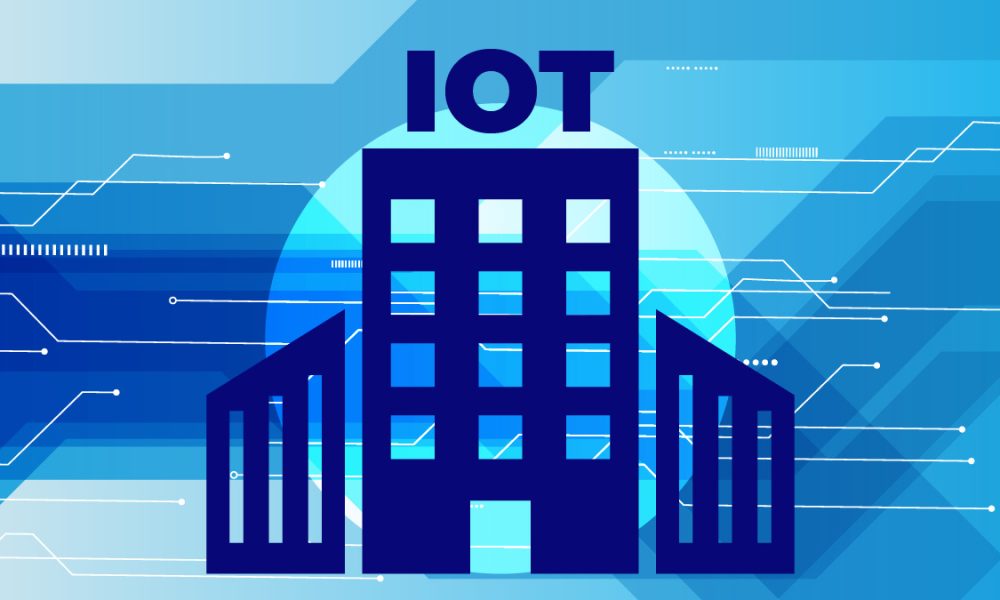The Internet of Things (IoT) has emerged as a game-changer for modern industries. IoT refers to a network of interconnected devices that can collect and share data. These devices include sensors, smartphones, wearable devices, and other objects embedded with software, electronics, and sensors. IoT has transformed the way industries operate, from manufacturing to healthcare to agriculture. With the increasing availability of IoT solutions and platforms, businesses have been able to reduce costs, increase efficiency, and improve customer experiences.
IoT in Manufacturing
In the manufacturing industry, IoT has enabled the creation of smart factories. These factories use sensors and other IoT devices to monitor equipment and predict when maintenance is required. This leads to reduced downtime and increased efficiency. For example, General Electric’s aircraft engine division has been using IoT technology to improve the reliability and performance of its engines. The company uses sensors to monitor engine performance in real-time, enabling it to predict maintenance issues before they occur.
IoT solutions have also enabled manufacturers to reduce costs by optimizing the supply chain and reducing waste. For example, IoT sensors can be used to monitor the temperature, humidity, and other environmental conditions during the transportation of goods. This data can be used to ensure that the goods are transported in the most efficient and cost-effective way possible.
IoT in Healthcare
IoT has enabled remote patient monitoring, wearable devices, and connected medical devices in healthcare. These technologies allow healthcare providers to monitor patients remotely and provide personalized care. IoT solutions have also improved patient outcomes by reducing readmission rates and improving medication adherence.
For example, remote patient monitoring enables healthcare providers to monitor patients with chronic conditions, such as diabetes, asthma, or heart disease, from a distance. This allows healthcare providers to intervene early when necessary and prevent hospitalizations. Wearable devices, such as fitness trackers or smartwatches, can also be used to monitor vital signs, such as heart rate and blood pressure.
Connected medical devices, such as smart inhalers or insulin pumps, can also improve patient outcomes by providing personalized care. For example, smart inhalers can monitor the usage of inhalers and provide feedback to patients to improve their medication adherence.
IoT in Agriculture
IoT has also had a significant impact on the agriculture industry. Enabled by IoT, precision farming techniques have enabled it to monitor soil conditions, crop growth, and livestock health. This has led to increased yields and reduced water usage. IoT solutions have also enabled farmers to reduce waste and optimize the supply chain.
For example, IoT sensors can be used to monitor soil moisture levels and nutrient levels. This data can be used to optimize irrigation and fertilization, leading to improved crop yields and reduced water usage. IoT sensors can also be used to monitor livestock health, enabling farmers to intervene early when necessary and prevent losses.
IoT in Retail
In the retail industry, IoT solutions have enabled the creation of smart shelves and asset tracking. These technologies allow retailers to track inventory and analyze customer behavior to improve the customer experience. IoT solutions have also enabled retailers to optimize the supply chain and reduce waste.
For example, smart shelves use sensors to monitor inventory levels in real-time. This data can be used to optimize inventory levels and reduce waste. Asset tracking enables retailers to track the movement of goods throughout the supply chain, providing real-time visibility and enabling more efficient logistics.
IoT Solutions and Platforms
IoT solutions and platforms are a critical component of the IoT ecosystem. IoT solutions are software applications that provide specific functionality, such as predictive maintenance or asset tracking. IoT platforms, on the other hand, provide a framework for building and managing IoT solutions. There are many different types of IoT solutions and platforms available, each with their own benefits and drawbacks.
Some popular IoT platforms include Microsoft Azure IoT Hub, IBM Watson IoT, and Amazon Web Services IoT. These platforms provide a variety of tools and services, such as device management, data ingestion, and analytics. They also support a wide range of devices and protocols, making it easier for businesses to connect their devices to the IoT ecosystem.
In addition to these platforms, there are also many IoT solutions available for specific industries and use cases. For example, there are solutions for predictive maintenance in manufacturing, remote patient monitoring in healthcare, and precision farming in agriculture. These solutions provide pre-built functionality and can be customized to meet the specific needs of a business.
Conclusion
IoT has transformed the way industries operate, from manufacturing to healthcare to agriculture. IoT solutions and platforms have enabled businesses to reduce costs, increase efficiency, and improve customer experiences. With the increasing availability of IoT technology, businesses can continue to innovate and improve their operations. By embracing IoT platforms and solutions, businesses can stay ahead of the competition and provide better products and services to their customers.
FAQs
Q: What are some benefits of using IoT in the workplace?
IoT can help businesses reduce costs, increase efficiency, and improve customer experiences. It can also enable remote monitoring and personalized care in healthcare, precision agriculture farming, and smart manufacturing factories.
Q: What is the difference between IoT solutions and IoT platforms?
IoT solutions are software applications that provide specific functionality, such as predictive maintenance or asset tracking. IoT platforms provide a framework for building and managing IoT solutions.
Q: What are some popular IoT platforms?
Some popular IoT platforms include Microsoft Azure IoT Hub, IBM Watson IoT, and Amazon Web Services IoT.
Q: Are there IoT solutions available for specific industries and use cases?
Yes, many IoT solutions are available for specific industries and use cases, such as predictive maintenance in manufacturing, remote patient monitoring in healthcare, and precision farming in agriculture.

